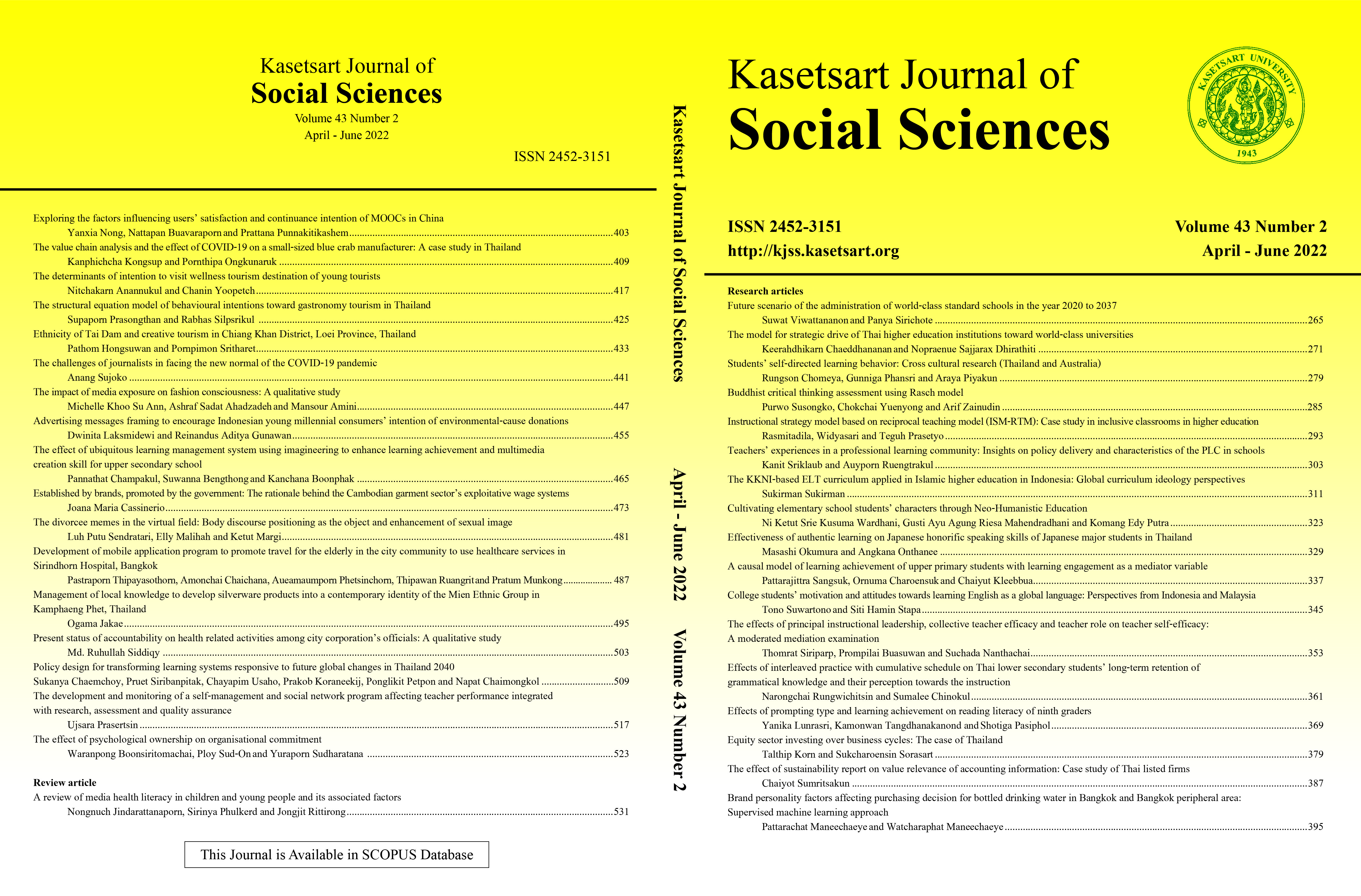Buddhist critical thinking assessment using Rasch model
Keywords:
assessment, buddha, critical thinking, Rasch modelAbstract
There are not many instruments that can be used to measure students ‘and adults’ critical thinking skills in the real world. Buddhist philosophy teaches 10 indicators to figure out someone’s critical thinking ability. This study was intended to; (1) arrange the critical thinking test items based on Buddhist philosophy (Buddhist Critical Thinking Assessment, BCTA); (2) validate the critical thinking test items based on Buddhist philosophy using the Rasch model approach. This study employed the Research and Development approach with ADDIE design. In the development stage, the BCTA test items were tested with 100 respondents from the students of Universitas Pancasakti Tegal, Indonesia consisting of 14 males and 86 females. The BCTA test items were calibrated using the Rasch model with politomos type PCM in three categories. Buddhist Critical Thinking Assessment (BCTA) consists of 10 test items with 10 critical thinking ability indicators based on Buddha in Kalama Sutta. Those 10 items were made in the form of rating scales with three answer choices. The analysis results showed that those BCTA test items have met both content and psychometric validity. The construct validity analysis results showed that all BCTA test items were valid from both content and substantive aspects.
Downloads
Published
How to Cite
Issue
Section
License

This work is licensed under a Creative Commons Attribution-NonCommercial-NoDerivatives 4.0 International License.
This is an open access article under the CC BY-NC-ND license http://creativecommons.org/licenses/by-nc-nd/4.0/










